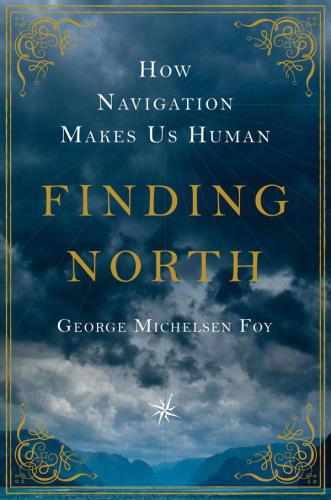
Finding North
How Navigation Makes Us Human
فرمت کتاب
ebook
تاریخ انتشار
2016
نویسنده
George Michelsen Foyناشر
Flatiron Booksشابک
9781250053893
- اطلاعات
- نقد و بررسی
- دیدگاه کاربران
نقد و بررسی

April 25, 2016
Foy (Zero Decibels) ruminates on the primal skill of navigation and its metaphysical links to human nature while investigating the final voyage of his great-great grandfather Capt. Halvor Michelsen, who was lost at sea in 1844. Resolving to reenact Michelsen's final voyage, Foy begins with general research into navigation, traveling to the Schriever Air Force Base in Colorado, which controls America's GPS system, and the Royal Institute of Navigation in London. He visits the Wellcome Trust Centre for Neuroimaging at the University of London, where he learns that the hippocampus, which governs our navigational abilities, also governs memory. This leads Foy to the philosophical revelation that "human identity equals memory; memory equals navigation; human identity therefore equals navigation." He spends some time discussing failures of the GPS system and continually muses on the perils of relying on machine-based navigation. He finally comes to the realization that navigation begins with loss: "Living, no matter how much it hurts, comes down to losing landmarks... and then striving to find where we are again." Deep waters and deep thoughts fill these pages. With skillful prose and insight, Foy's account of the different aspect of navigation packs a powerful punch, especially when he embarks on his own voyage at sea.

March 15, 2016
Novelist and amateur sailor Foy (Creative Writing/New York Univ.; Zero Decibels: The Quest for Absolute Silence, 2010, etc.), who sees technology as a distinctly mixed blessing, chronicles his journey up the New England coast in a rickety boat without satellite guidance. In a poetically written, occasionally fragmented account, the author traces his attempts to emulate with more success his great-great grandfather, who died when his ship went down in the frigid waters off Norway. Before taking off on the brief sail from Cape Cod to Maine described in two chapters, in which the author nearly falls off the ship during high winds and reluctantly uses GPS to navigate to shore through the fog once he has reached his destination, he undertook some other navigation-related adventures. He got lost in "a casual sort of way" on his way to NYU's biology lab to explore how cells make their ways to their proper positions; encountered "the dark heart of GPS" at Schriever Air Force Base in Colorado; and hitched a ride with a Haitian boat captain who steers by the stars. Later, he headed off to Norway to try, with questionable success, to find the spot in the ocean where his ancestor's ship went down. Attempts to work in his feelings about the recent death of his brother take the book off course, and speculations about the connection between the increase in the number of Alzheimer's cases and the more frequent use of GPS are far-fetched. The author's work is most successful at its most visceral: the feeling of "slaloming around lobster trap buoys, like a plane lost in clouds," or the sight of life jackets, "hung like orange fruit in the rigging." Armchair sailors will enjoy the vicarious thrills of Foy's brief journeys, and even those with no intentions of abandoning their smartphones will find something to ponder in his speculations about the challenges of gadget-free navigation.
COPYRIGHT(2016) Kirkus Reviews, ALL RIGHTS RESERVED.




دیدگاه کاربران